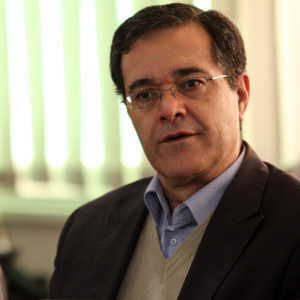Iran and the New Middle East

Sociologists have long drawn public attention to the profound events awaiting the Middle East, and politicians such as George Bush welcomed the idea of these events so that he could control their path under the concept of the “Greater Middle East”. However, these events that overthrew authoritarian regimes, did not take place when Bush wanted them to and neither did they happen as he desired. Ironically, these changes were somewhat in favor of America’s enemy in the region, namely Iran, but due to their popular nature in the current stage, Iran could benefit from these events as far as the popular aspect of its political system would allow it to. Also, it could benefit provided that Iran’s government was able to lead events through its spiritual influence.
But time is very short. Societies that were under dictatorship for many years, are weary of creativity, and suffer a lack of culture and democratic institutions, have a very difficult and confusing path ahead of them. In the short run, true democracy will still remain a heavenly ideal for these societies, but a superficial democracy will arrive with all its difficulties. In this era, and by using the façade of democracy and freedom, different types of regional and external actors will confront them with plans of various conspiracies; the result of which will be the creation of new political figures who will be in contact with the outside world. During this situation, no one will prepare the ground for Iran’s influence. On the contrary, these new and unknown figures are to create more disturbances, failures, and conflicts for Iran.
If the collapse of the Soviet Union brought insecurity to the northern borders of Iran, these unrests in the Middle East will bring more restrictions to Iran in the region. This time, the attack on Iran comes along with new attractions, and many arrows are ready to be thrown at Iran in the name of democracy and human rights. Worst of all is the fact that Iran’s political system is not compared to these new and seemingly democratic regimes, but it is considered an equivalent of pre-revolutionary regimes deserving to be toppled. It can be understood from the statements of American officials during the past few months that since regime change has happened in one or two countries, it is much better if it happens in the whole region so that based on these newly established regimes, a new Middle East can be designed. Bush planted the seeds, and now Obama is to harvest them.
But this policy loses its integrity in some places. Only in places where the United States is encouraging the governments to suppress their people, like Bahrain, could Iran benefit the most. Following the visit of US Defense Secretary Gates to Bahrain, the tone of the Bahraini king turned more violent and crueler against protesters, and later Saudi Arabia sent more military forces to his country. We have many instances of these contradictions in the history of international relations. Currently, in any case that Iran is thought to achieve relative success, policies suddenly change. Now, everywhere except Bahrain it is the people who are right and are fighting for their freedom!
But the strategy of a great power consists of different stages. Perhaps in the near future powers will come up with a different policy, but currently this is the situation. On the other hand, there is no guaranty that the establishment of another Islamic government in the region will be to the benefit of Iran. For example, if the Muslim Brotherhood, which Iran is a great proponent of or at least pretends to be, comes to power, it will certainly contradict the Islamic unity policy in Iran. The Muslim Brotherhood not only considers Shiites as heretics, but also has plans and beliefs that greatly oppose the beliefs and policies of Iranians. If peace comes to Iraq, the policies will change as well. The most disturbing fact is that some imply that having any relations with Iran, especially when it is not able to act properly with its own people, is dangerous and harmful to these newly democratic countries. France lost all its colonies to England when it was busy struggling for power domestically, and politicians would attack each other instead of their enemies. Currently, most indexes and signs do not allow us to naively or optimistically await changes in the Middle East; but on the contrary, we have to anticipate more bottlenecks ahead.

